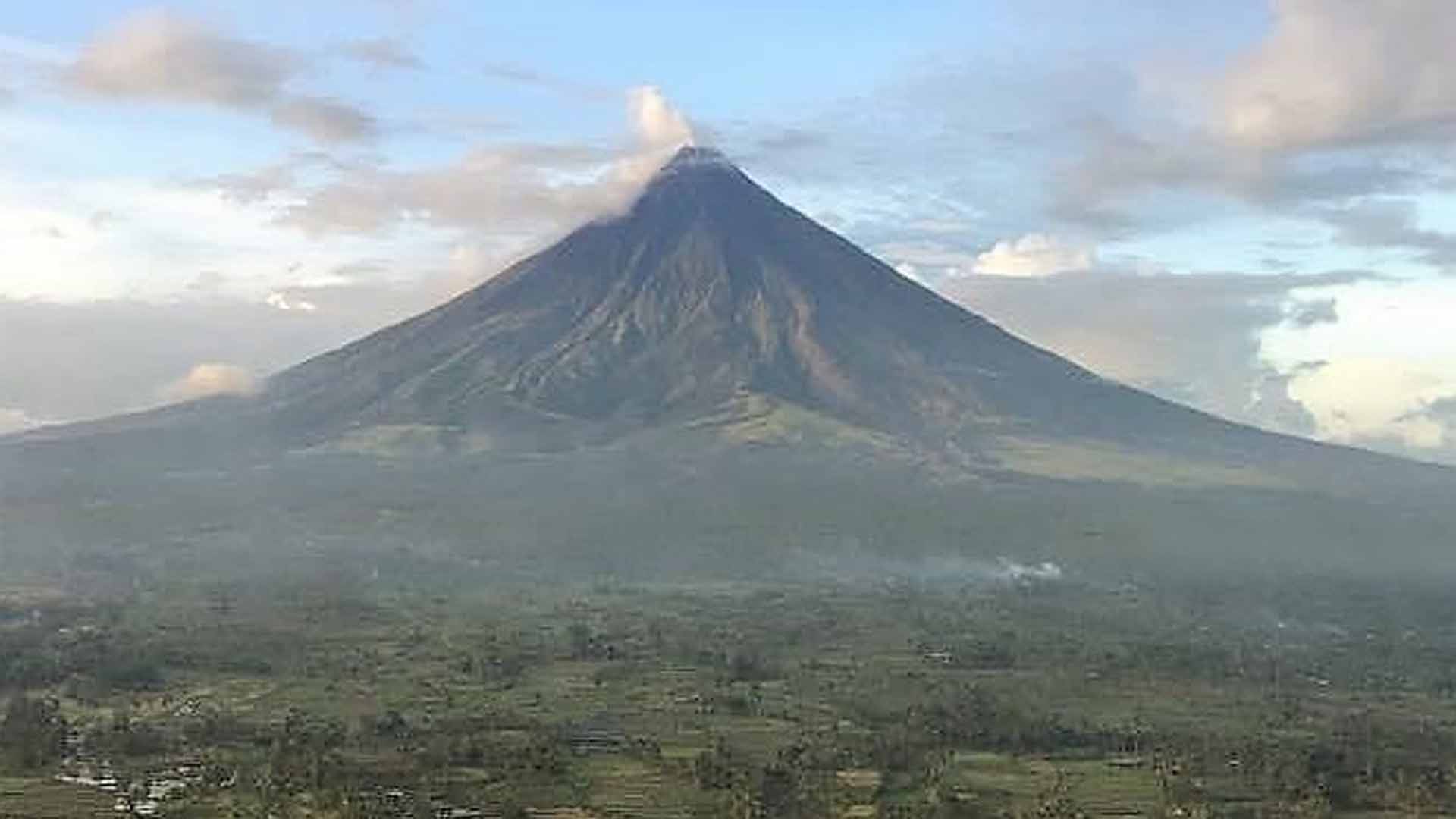The National Disaster Risk Reduction and Management Council (NDRRMC) said it is keeping a tight watch over Mayon Volcano.
“We are now on heightened monitoring because we are looking at all her activities but while the situation is still stable, we will see to the readiness of our responders or the LGUs (local government units) for that matter, so that we can react immediately in case the alert levels are elevated further should there be further volcanic activities,” NDRRMC spokesperson and Office of Civil Defense Assistant Secretary Bernardo Rafaelito Alejandro IV said in mixed Filipino and English during a Laging Handa briefing on Monday.
Alejandro reminded LGUs near the volcano to strictly prohibit human entry or any activity in the six-kilometer permanent danger zone especially in areas near the volcano which are prone to avalanches or fissuring of the ground.
“No one should be allowed entry there so authorities in Albay near to strictly implement that,” he added.
Meanwhile, the Albay Provincial Disaster Risk Reduction and Management Office has prohibited all human activities within Mayon Volcano’s six-kilometer radius permanent danger zone (PDZ).
The prohibition was ordered over the weekend after Mayon Volcano’s alert level status was raised from 1 (abnormal) to 2 (increasing unrest).
“Mountain climbers, orchid pickers, hiking, camping, and or other related recreational activities are now prohibited,” Albay Gov. Noel Rosal said.
Residents and farmers are also advised to avoid the danger zone, particularly in the towns of Sto. Domingo in Barangay Lidong, Legazpi City in upper Barangay Padang, Buyuan, Matanag, Bonga and Mabinit, Daraga in Barangay Banadero, Matnog, Salvacion, Miisi, and Malobago; Camalig town in upper Quirangay, Tumpa, Sua, Anoling, and Tinubran; Barangay Baligang and Amtic in Ligao City; Magapo, Buang, and Buhian in Tabaco City; and Malilipot town in Barangay Canaway, Calbayog, and upper San Roque.
Rosal also warned people residing along valleys and river channels to remain vigilant against lahar in case of prolonged and heavy rainfall reaching 40-60 millimeters per hour.
Local disaster councils are advised to review their action plans for evacuation once alert level 3 status is officially declared.
Despite no recorded increase in volcanic activities, the Philippine Institute of Volcanology and Seismology raised Mayon’s alert status from Level 1 (abnormal) to Level 2 (increasing unrest) on Oct. 7.
Department of Science and Technology Secretary Renato Solidum Jr. said magma has slowly ascended to the surface extruding lava that formed a lava dome and that the dome has increased in volume as more lava piled up.
The sighting of the dome led to the upgrading of the volcano’s alert level from 0 to 1 last Aug. 21.
A slight inflation of Mayon Volcano has also been observed based on electronic tilt and GPS measurements and precise leveling survey, which indicated the continued slow ascent of magma to the surface. Hence, the alert level was raised to Level 2, Solidum said. (PNA)





